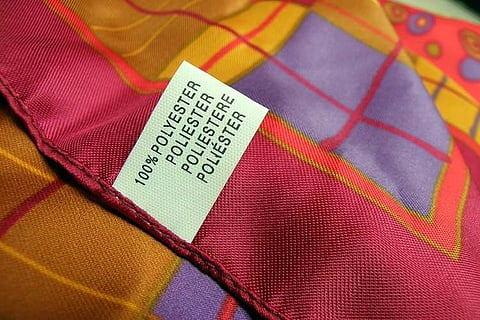

So you don't use plastic carry bags, or plastic bottles, stationery or cutlery.
What about your clothes?
Do you use synthetic fibers like polyester? Your yoga pants, fleece jackets or even undergarments can have polyester.
And that has the potential to do some serious harm to the environment.
A video by The Story of Stuff Project explains how synthetic fibres are directly polluting our seas and, indirectly, us.
We all may know or would have heard about how plastic products can be recycled. Some companies are using these to create synthetic textiles.
While recycling plastic may seem like a good idea, the video points out that it may encourage some people to use more disposable plastic.
But the bigger problem is that each time these synthetic garments are washed, they release hundreds of thousands of microfibres.
Microfibres are synthetic fibers that are less than 5mm in length. It is considered an emerging pollutant and can prove to be hazardous to the environment, all the more because it can pollute our food chain.
An alarming research published last year found that "microfibers are prevalent in both aquatic and terrestrial habitats, from the bottom of the Indian Ocean to farmland in the United States".
It stated that synthetic textiles shed on average 1.7 grams of microfibers on being washed. The micro-particles reach the waste water treatment plant from the washing machine and from there, up to 40% of them enter rivers, lakes and oceans.
Aquatic animals end up consuming these microplastics and microfibres. "Within the food chain, these particles have been found to cause physical and chemical impacts, resulting in starvation and reproductive consequences in species. Microplastics and microfibres have also been found in marine species directly consumed by humans, the effects of which are unknown. They have also been found in abiotic ocean products like sea salt," the finding stated.